The Gift of South Dakota
Subscriptions to South Dakota Magazine make great gifts!
Subscribe today — 1 year (6 issues) is just $29!
Lalla Rookh Reverie
Mar 11, 2014
About 6 percent of people living in Yankton County trace their primary heritage to Ireland. Perhaps some of them can credit John Pope Hodnett with bringing their families here, even if his planned Irish community north of Yankton never materialized.
Hodnett was a native of Ireland who settled with his family in Chicago. By the late 1860s he had become a national spokesman for the Irish Republicans, an organization he helped create in July 1868. “Prior to the Civil War it was rarely one met an Irishman who was not a Democrat,” wrote George Kingsbury in his History of Dakota Territory. “They seemed to find a congenial political brotherhood in that party, and it was a general belief that this was largely due to the influence thrown around them in the city of New York upon their reaching this country from their native land.”
But here was Hodnett, actively stumping for presidential Ulysses S. Grant and other Republicans during the summer of 1868. At speeches in Illinois and Missouri he implored his fellow Irishmen that the Republican Party held the greatest hope for their future prosperity in America. His argument was often met with violence from Democratic Irishmen. A mob nearly destroyed the house where he was staying during a speech in Decatur, Ill., and he survived an assassination attempt in Chicago.
When Grant was elected president in November, he rewarded loyalty to his campaign and party through political appointments. John Pope Hodnett became the assessor of internal revenue for Dakota Territory. He came to Yankton in April 1869, and that summer he filed a claim on a piece of land about 7 miles north of town.
Hodnett’s arrival coincided with a push among Dakota Territorial leaders to recruit settlers, so Gov. Burbank appointed him to be an immigration official. He was aware that Irishmen were migrating west out of big eastern cities, so he devised a plan to bring them to Dakota and build a sprawling Irish colony.
He marketed his new homeland masterfully. Hodnett bragged about its beautiful groves, waving grain fields and brilliant gardens. He even had a little body of water he called Lake Lalla Rookh, taken from the title of a romantic poem written by Thomas Moore in 1817. He helped file claims around his homestead for at least eight wealthy businessmen from New York and Virginia.
But those would-be settlers soon lost interest in a new life in Dakota. Hodnett even lost his little lake to a summer drought. A handful of Irish families did settle in Yankton County and some traces of Irish life exist today, but it’s certainly not the hub John Pope Hodnett hoped it would someday become.



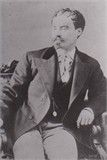
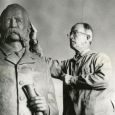
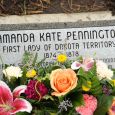
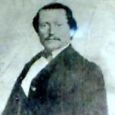

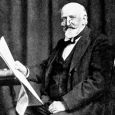



Comments